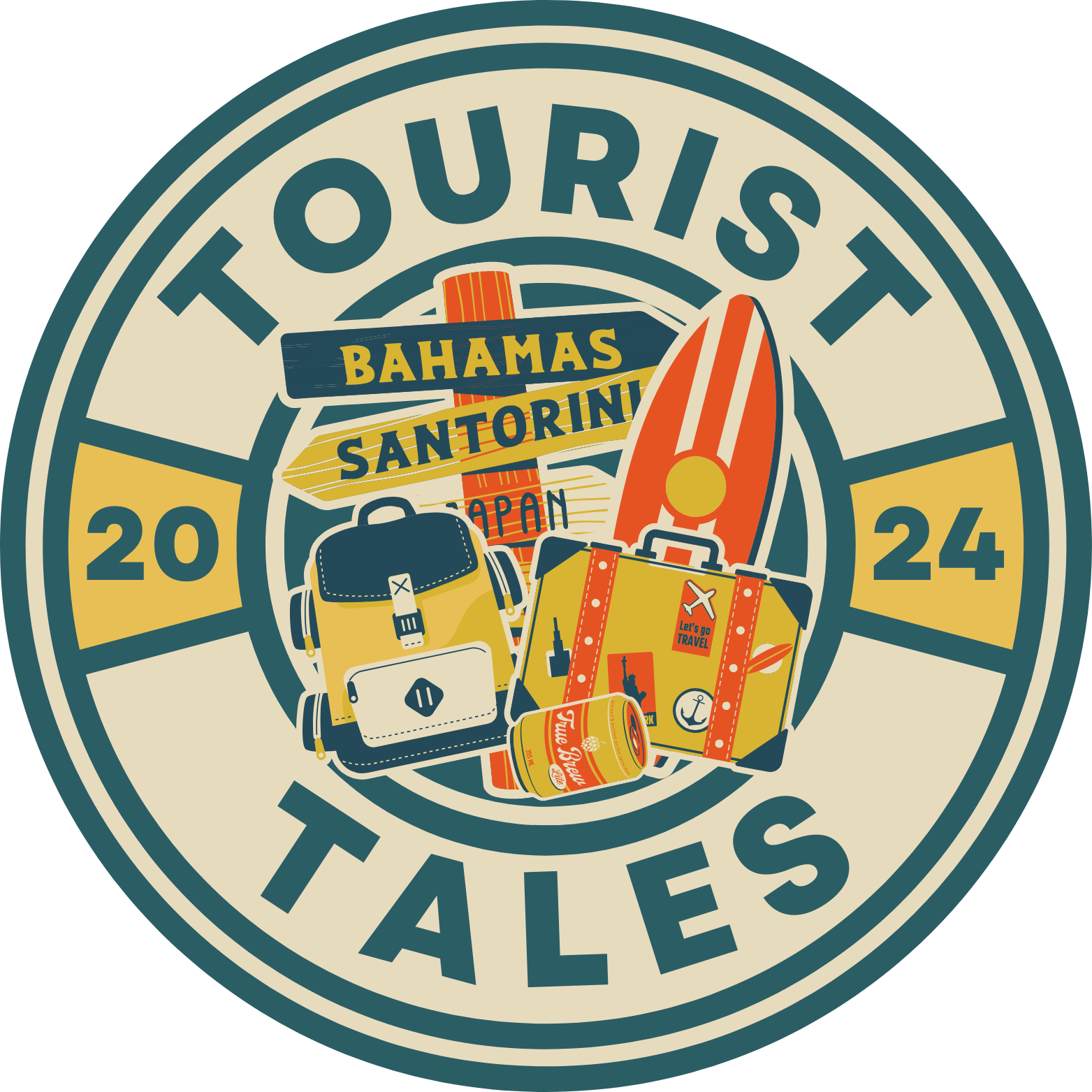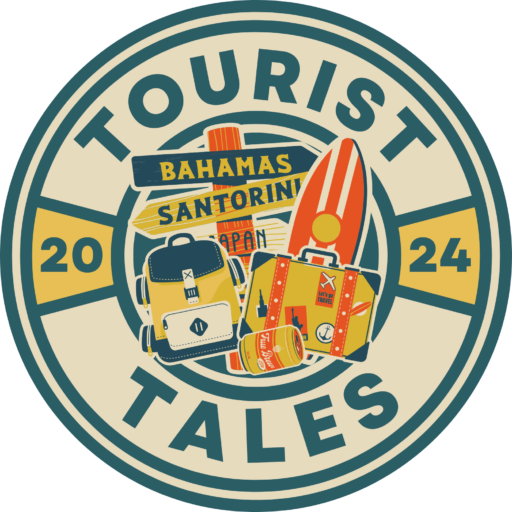Whether you’re dreaming of sun-soaked islands, ancient ruins, or mouthwatering cuisine, Greece has it all. As a travel writer who fell head over heels for this country, I’m here to share all the insider tips and must-know info to help you plan your ultimate Greek adventure. Let’s dive into the most common questions I get asked:
General Greece FAQs
Where is Greece located?
Greece is a country in Southeast Europe, located on the southern tip of the Balkan Peninsula.
– Continent: Europe
– Region: Southeast Europe
– Borders: Albania (northwest), North Macedonia (north), Bulgaria (north), Turkey (northeast)
– Seas: Ionian Sea (west), Aegean Sea (east), Mediterranean Sea (south)
What is the capital of Greece?
Athens, the vibrant capital of Greece, is a fascinating mix of ancient history and modern life. Here, you’ll find iconic landmarks like the Acropolis and Parthenon, alongside bustling markets, trendy neighborhoods, and a lively food scene.
What language is spoken in Greece?
Greek, of course! But don’t worry if you don’t speak it. English is widely understood, especially in tourist areas. Learning a few basic phrases like “kalimera” (good morning) and “efcharisto” (thank you) will definitely earn you some smiles.
What currency is used in Greece?
The euro (€) is the official currency. Be sure to check the current exchange rates before your trip and consider using a credit card for most transactions. Tipping isn’t mandatory, but rounding up the bill or leaving a few euros is appreciated.
What is the time zone in Greece?
Greece follows Eastern European Time (EET), which is two hours ahead of Coordinated Universal Time (UTC+2).Daylight saving time is observed from the last Sunday in March to the last Sunday in October.
What are the best times to visit Greece?
The shoulder seasons (spring and fall) are ideal for pleasant weather, fewer crowds, and lower prices. Summer can be scorching hot, especially on the islands, but it’s perfect for beach lovers and party-goers. Winter is mild, but some islands may have limited services.
Is Greece a country or an island?
Greece is a country, but it boasts over 2,000 islands! Each island has its own unique charm, from the iconic Santorini and Mykonos to the lesser-known gems like Naxos and Milos.
What is Greece famous for?
Greece is a treasure trove of ancient history, mythology, stunning islands, and mouthwatering cuisine. It’s the birthplace of democracy, the home of the Olympian gods, and a paradise for beach lovers, foodies, and history buffs.
Is Greece safe for tourists?
Yes, generally. Greece is a safe destination for travelers, but it’s always wise to take precautions. Watch out for pickpockets in crowded areas, keep your belongings secure, and be mindful of your surroundings.
Greek Culture & History FAQs
What is the official religion of Greece?
Greek Orthodox Christianity is the dominant religion, and you’ll find beautiful churches and monasteries scattered throughout the country.
What are some famous ancient Greek sites?
The Acropolis with the Parthenon is a must-see, but don’t miss the ancient sanctuary of Delphi, the birthplace of the Olympic Games in Olympia, and the Minoan palace of Knossos on Crete.
Who were some important figures in Greek mythology?
Zeus, the king of the gods, Athena, the goddess of wisdom, Poseidon, the god of the sea, and Hades, the god of the underworld, are just a few of the fascinating characters in Greek mythology.
What are some traditional Greek dances?
Sirtaki, the iconic dance from “Zorba the Greek,” and Kalamatianos, a lively circle dance, are popular at festivals and celebrations.
What are some unique Greek customs or traditions?
Greeks celebrate name days (the feast day of the saint they’re named after) with more enthusiasm than birthdays. Easter is the biggest holiday, with elaborate celebrations and feasts. And the concept of “philoxenia” (hospitality) is deeply ingrained in Greek culture.
What are the Greek Gods?
The Greek pantheon includes twelve major gods and goddesses, each with their own domain:
– Zeus (sky and thunder)
– Hera (marriage and family)
– Poseidon (sea and earthquakes)
– Demeter (agriculture and fertility)
– Athena (wisdom and warfare)
– Ares (war and violence)
– Apollo (music, poetry, and light)
– Artemis (hunting and wilderness)
– Hephaestus (fire and metalworking)
– Aphrodite (love and beauty)
– Hermes (trade, travel, and communication)
– Hestia (home and hearth).
What is the history of Greece?
Greece boasts a rich and complex history, spanning thousands of years. It’s home to ancient civilizations like the Minoans and Mycenaeans, the birthplace of democracy in Athens, and a major player in the Roman and Byzantine empires.
What are some famous Greek philosophers?
Socrates, Plato, and Aristotle are considered the founding fathers of Western philosophy, and their ideas continue to shape our thinking today.
Greece Travel & Tourism FAQs
Do I need a visa to visit Greece?
If you’re a citizen of the European Union, the European Economic Area, or Switzerland, you don’t need a visa. Citizens of many other countries can visit Greece visa-free for up to 90 days within a 180-day period. Check the entry requirements for your specific nationality.
What are some must-visit Greek islands?
Santorini, with its iconic white-washed buildings and stunning sunsets, Mykonos, known for its vibrant nightlife and beautiful beaches, Crete, the largest island with diverse landscapes and rich history, and Rhodes, a medieval walled city with ancient ruins and charming villages, are all popular choices. But don’t overlook the hidden gems like Naxos, Paros,Milos, and Hydra.
What are some popular Greek dishes to try?
Moussaka (a layered eggplant and meat dish), souvlaki (grilled meat skewers), gyros (meat cooked on a vertical rotisserie), and Greek salad (with feta cheese, tomatoes, cucumbers, and olives) are just a few of the delicious dishes you’ll find in Greece.
What are some recommended Greek wines or drinks?
Retsina, a white wine flavored with pine resin, ouzo, a strong anise-flavored aperitif, and Assyrtiko, a crisp white wine from Santorini, are all worth trying.
How do I get around Greece?
Ferries are the most common way to travel between the islands, while buses and trains are convenient for mainland travel.Taxis are readily available in cities, and car rentals are a good option for exploring more remote areas.
How many days do you need in Greece?
It depends on your interests and pace. A week is enough to get a taste of Athens and a couple of islands, but two weeks or more will allow you to explore more in depth.
What are the best beaches in Greece?
Greece is blessed with countless beautiful beaches, from the black sands of Santorini’s Perissa Beach to the party vibes of Mykonos’ Paradise Beach. Elafonisi Beach on Crete, Navagio Beach on Zakynthos, and Voidokilia Beach in the Peloponnese are just a few of the stunning shores you’ll discover.
How expensive is Greece?
Greece can be quite affordable, especially if you travel during the shoulder seasons and avoid the most touristy islands.Expect to spend around €50-€80 per day on accommodation, food, and activities.
Practical Greece FAQs
What are some essential Greek phrases for tourists?
– Kalimera (kah-lee-MEH-rah): Good morning
– Kalispera (kah-lee-SPEH-rah): Good afternoon/evening
– Yia sas (yah-SAHS): Hello/Goodbye (informal, plural)
– Yia sou (yah-SOO): Hello/Goodbye (informal, singular)
– Efcharisto (ef-kha-ri-STOH): Thank you
– Parakalo (para-kah-LOH): Please/You’re welcome
– Ne (neh): Yes
– Ochi (OH-hee): No
– Pou ine…? (poo EE-neh): Where is…?
Is it safe to drink tap water in Greece?
While tap water is generally safe, bottled water is recommended, especially on the islands.
What are the tipping customs in Greece?
Tipping isn’t mandatory, but rounding up the bill or leaving a few euros is appreciated in restaurants and taxis. In hotels, you can leave a few euros for the housekeeping staff.
Are credit cards widely accepted in Greece?
Yes, credit cards are widely accepted in most establishments, but it’s always good to have some cash on hand for smaller businesses or remote areas.
What should I pack for a trip to Greece?
Pack light, breathable clothing for the warm weather, a hat, sunglasses, sunscreen, comfortable shoes for walking on cobblestone streets and exploring ancient sites, and a swimsuit if you plan on hitting the beach.
Do they speak English in Greece?
Yes, English is widely spoken in Greece, particularly in tourist areas, major cities, and among younger generations.
– Prevalence: Over 50% of the Greek population can speak English.
– Commonality: Most people working in tourism, hospitality, and service industries speak English fluently.
– Tourist Areas: English is even more prevalent in popular tourist destinations like Athens, Santorini, Mykonos, and Crete.
– Recommendation: While English is sufficient for most interactions, learning a few basic Greek phrases is appreciated and enhances your travel experience.
What kind of adaptor do I need for Greece?
Greece uses Type C and F plugs, so if your devices use a different type of plug, you’ll need an adaptor.
What is the dress code in Greece?
The dress code is generally casual, but it’s important to dress respectfully when visiting churches and monasteries. Cover your shoulders and knees, and avoid wearing revealing clothing. In everyday life, comfortable shoes are a must for navigating cobblestone streets, and light, breathable fabrics are ideal for the warm weather.
Kali Orexi! (Bon appétit!)
I hope these Greece FAQs have answered all your burning questions about Greece! If you have any more, feel free to drop a comment below. Now go forth and explore this beautiful country – I know you’ll fall in love with it as much as I did!
Make Your Trip Easier
I’m all about planning trips on your own and figuring your way around the local scene. But still, I don’t want to leave you like a fish out of water!
Here are some resources I regularly use whenever I travel (on my own or with other people):
- Find fun things to do with Get Your Guide.
- Need accommodations? Find the best hotel deals on Booking.com!
- Get around like a local by booking a car rental on Discover Cars.
- Don’t sink or swim! Make ferry bookings easier on Ferryscanner.
- Looking to teach ASL or find work as you settle into your new life? This ITTT TEFL course is exactly what you need.
- Plane tickets can be pricey. Find the best deals on Oneflyaway and Faredrop.
- You know what they say, safety is the best policy. Keep yourself protected with travel insurance from Safetywing.
- Need to send or receive money overseas? It’s be unwise not to use Wise.





